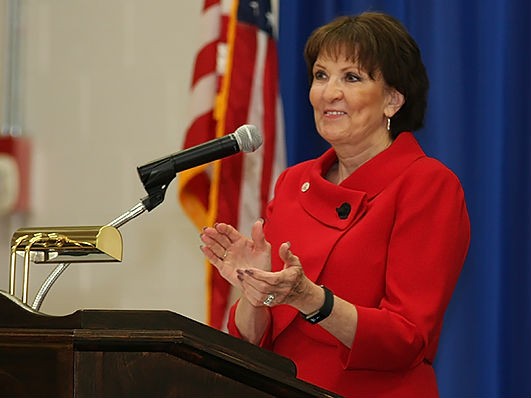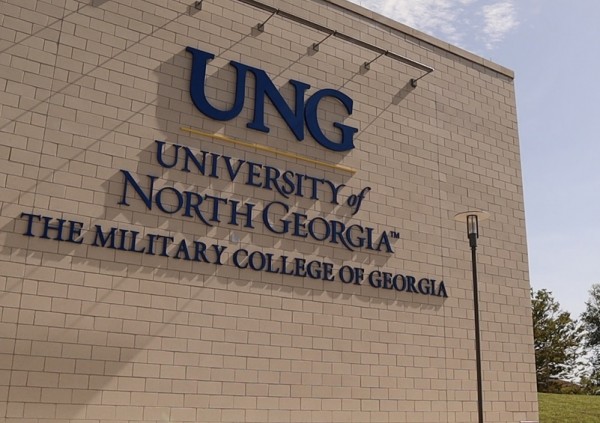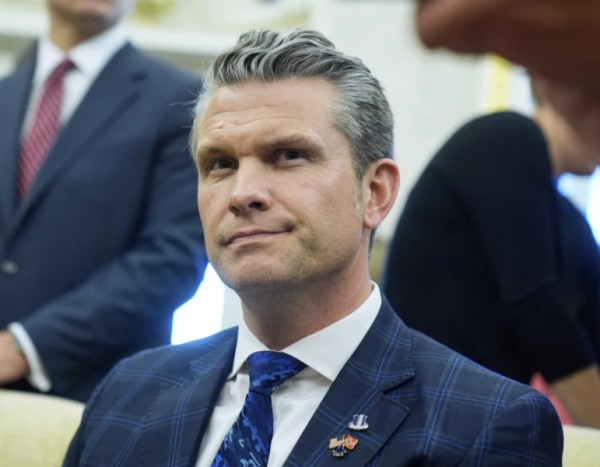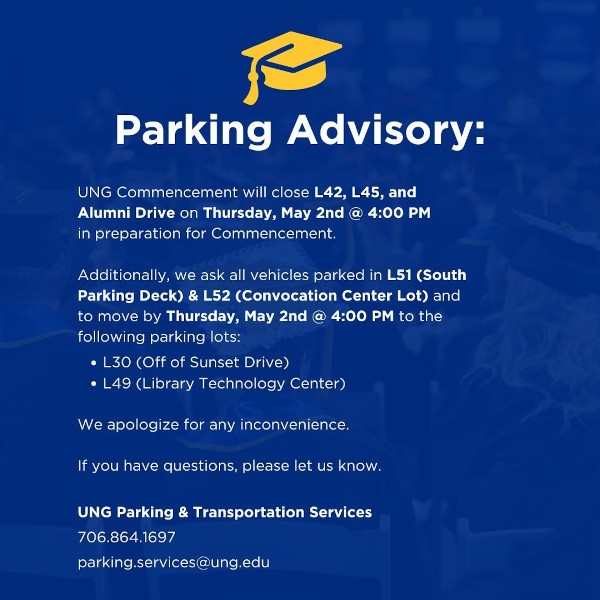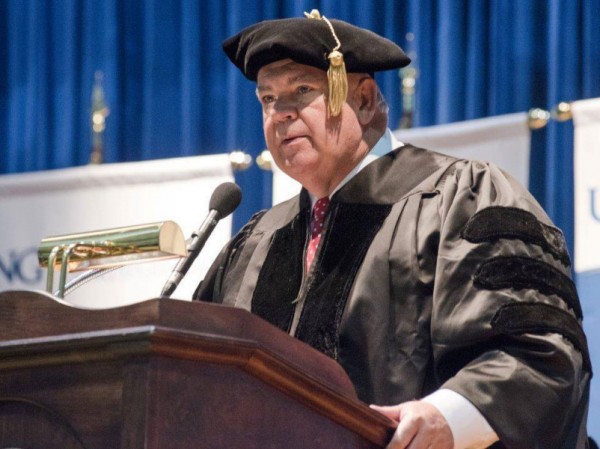University of North Georgia President Bonita Jacobs opened her State of the University address with an anecdote about a recent conversation she had with an academic colleague.
"Recently, I was talking with a vice chancellor at the (University System of Georgia) office who reminded me that — in his words — ‘UNG is now a rock star,’ and also that we need to think big," Jacobs said Aug. 14at the annual gatherings that launch the 2017-2018 academic year. "We have advanced so much in recent years that it is sometimes easy to underestimate all we have accomplished and who we have become."
Jacobs reminded the assembled faculty, staff and guests by touching on a number of accomplishments achieved by UNG in the past year.
Among the highlights:
For the second year in a row, Forbes magazine named UNG as one of the nation's top higher education institutions in its annual "America's Top Colleges" rankings, rated third among only five public universities in Georgia included on the list. UNG was also only one of three public universities in the state on Kiplinger’s annual list of "Best Values in Public Colleges."
Fourteen students applied for the Fulbright program, with 10 selected as semifinalists. Nine won the award, placing UNG among the top-producing universities in the nation this year.
The Lewis F. Rogers Institute for Environmental and Spatial Analysis (IESA) was recently designated a Center of Academic Excellence in Geospatial Science, the only institution in the state with that designation, and one of only 25 in the nation.
UNG's Corps of Cadets excelled and outpaced the other senior military colleges in last year’s Cadet Leadership Course, with 32 percent of cadets earning "top block" rankings, placing them in the top 15 percent in the nation.
Recent graduates in teacher education, physical therapy, and clinical mental health counseling scored a 100 percent pass rate on their required licensure examinations.
With success comes challenges, Jacobs said. She addressed the issues that will affect UNG in the near and long term, with funding topping the list.
The University System of Georgia (USG) Board of Regents approved the capital budget proposal, including $3 million for the planning and design funds for renovations to the Lanier Tech campus in Gainesville when UNG takes possession of the property in 2019. UNG received additional funding to add 71 new faculty positions and 43 new staff positions, the first year such a significant number of employees were hired, Jacobs said.
“I am grateful to the Board of Regents, the General Assembly and Governor Deal for their support of UNG,” said Jacobs.
Affordability is another key issue, Jacobs said. It is being addressed through textbook initiatives, reduced course fees, increased scholarships and the Student Money Management Center.
Other challenges included economic and workforce development initiatives, undocumented and Deferred Action for Childhood Arrivals (DACA) students, and the recently enacted guns on campus law.
As UNG faces these and other issues, Jacobs said it is important to focus on the university's mission.
"We need to be thoughtful about the legacy we are building," she said. "How do we make it better? Are we turning out educated people in every sense of the word? We must reinforce our values of leadership, integrity and character in addition to high academic standards and critical-thinking skills in a changing world."
To that end, Jacobs cited the evolving role each UNG location plays in meeting students' needs. The Blue Ridge Campus will be a "game-changer" as it is determined what courses and programs will best serve that community. The Cumming Campus is expanding its graduate programs and partnering with Forsyth County School's Career Academy. The Dahlonega Campus is growing its programs in business, languages, health care, and education. Programs in communications, film and nursing are growing to meet demand on the Gainesville Campus. The Oconee Campus is set to be a premiere campus for students in the two-year transfer program
In closing, Jacobs said UNG is an emerging institution on the path to national prominence, providing students with an educational experience built on quality academics, affordability, accessibility, and a commitment to student success and leadership development.
Jacobs reiterated the university will continue its commitment to excellence, asking the audience to consider the word "significance." Derived from the Latin significantia, it denotes "meaning, force and energy."
"The work we do through UNG has meaning; we are a formidable force; our energy helps give flight to our students' dreams and to the future of north Georgia," Jacobs said.


